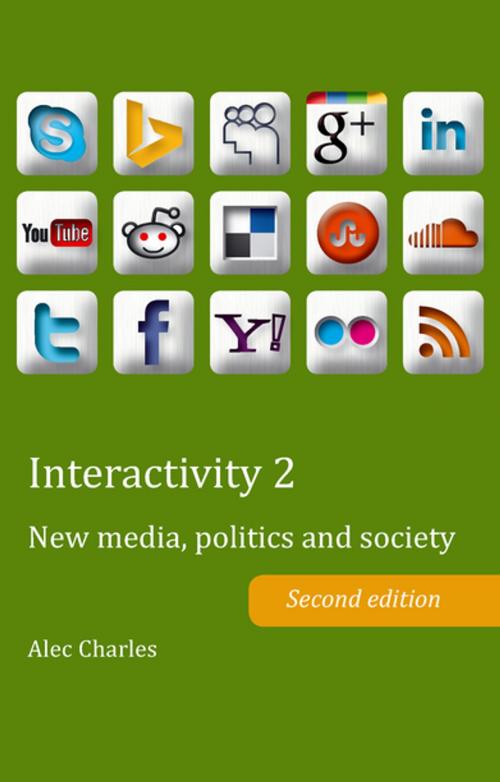Interactivity 2
New media, politics and society- Second edition
Nonfiction, Reference & Language, Language Arts, Communication, Social & Cultural Studies, Social Science, Sociology, Political Science| Author: | Alec Charles | ISBN: | 9783035399929 |
| Publisher: | Peter Lang | Publication: | July 25, 2014 |
| Imprint: | Peter Lang AG, Internationaler Verlag der Wissenschaften | Language: | English |
| Author: | Alec Charles |
| ISBN: | 9783035399929 |
| Publisher: | Peter Lang |
| Publication: | July 25, 2014 |
| Imprint: | Peter Lang AG, Internationaler Verlag der Wissenschaften |
| Language: | English |
Two years is a long time in the world of new media – a world of phubbing and selfies, of cyberbullying and neknomination, of bitcoins, Prism surveillance and Google Glass. Much has occurred since the first edition of this book: from the extraordinary social media responses to the deaths of Margaret Thatcher, Nelson Mandela and Peaches Geldof, to the Twitterstorms occasioned by allegations against a late peer of the realm, the rise of the UK Independence Party and the popularity of The Great British Bake Off. The Egyptian revolution has come undone, the Turkish government has banned YouTube, the American President has looked beyond Facebook and the British Prime Minister has started to tweet. World leaders at a 2014 summit even played an interactive nuclear war game. Emergent technologies have been held responsible for the demise of a television presenter in a snowball-related incident, the disappearance of a Pacific island and the appearance of an unfeasibly massive squid. Drawing upon developments in social networking, crowdsourcing, clicktivism, digital games and reality TV, this study asks whether the technological innovations which sponsored such absurdities might ever promote progressive modes of social interaction and political participation. Perhaps somewhat absurdly, it suggests they one day might.
Two years is a long time in the world of new media – a world of phubbing and selfies, of cyberbullying and neknomination, of bitcoins, Prism surveillance and Google Glass. Much has occurred since the first edition of this book: from the extraordinary social media responses to the deaths of Margaret Thatcher, Nelson Mandela and Peaches Geldof, to the Twitterstorms occasioned by allegations against a late peer of the realm, the rise of the UK Independence Party and the popularity of The Great British Bake Off. The Egyptian revolution has come undone, the Turkish government has banned YouTube, the American President has looked beyond Facebook and the British Prime Minister has started to tweet. World leaders at a 2014 summit even played an interactive nuclear war game. Emergent technologies have been held responsible for the demise of a television presenter in a snowball-related incident, the disappearance of a Pacific island and the appearance of an unfeasibly massive squid. Drawing upon developments in social networking, crowdsourcing, clicktivism, digital games and reality TV, this study asks whether the technological innovations which sponsored such absurdities might ever promote progressive modes of social interaction and political participation. Perhaps somewhat absurdly, it suggests they one day might.















